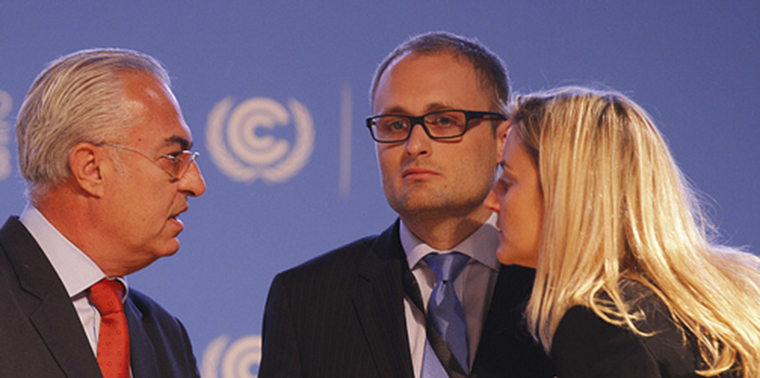November 20, 2015 — With the Paris climate negotiations just two weeks away, we’ll soon see if the world can agree on a plan for slashing greenhouse gas emissions to slow climate change. To get insight into the upcoming conference, a research team from Chalmers University of Technology in Gothenburg, Sweden, built a simplified (read: not completely real-world) mathematical model that reached two conclusions about climate talks: First, the more countries that are involved, the harder it is to settle on a deal. Second — counterintuitively — when negotiators think more strategically, they impede their chance of reaching consensus.
To improve on past studies exploring the theory behind negotiation outcomes, the researchers, whose work was reported recently in the journal Nature Climate Change, modeled negotiators with talent for thinking strategically. Under this scenario — which aligns with surveys showing that high-level policy-makers use a degree of strategic reasoning that’s higher than that of the average person — negotiators each want to get the best deal possible for their country: They don’t want to offer any more emission cuts than they have to. Negotiators with high strategic reasoning are marked by a skill for predicting other negotiators’ behavior.
Compared with the real thing, this model of climate talks was super simple. That’s because, instead of actual nations and real back-and-forth haggling, the model abstracted to equal-size countries that started with an initial offer of how much they’d cut their greenhouse gas emissions, then gave them a chance to negotiate over a number of turns, either raising or lowering their offers depending on what other countries did. A series of equations shaped how negotiators would react.
The team set up several scenarios, some with more strategic negotiators than others. They also varied the number of negotiating countries in each scenario.
After running each scenario 100,000 times, the researchers found that the more countries involved, the lower the chance of agreeing to emissions terms that could avoid catastrophic climate change. Likewise, situations with more negotiators who strategically thought through things succeeded less often than scenarios in which fewer participants had high levels of strategic reasoning. “[S]trategic reasoning,” the authors write, “typically increases the risk of climate catastrophe in our model.”
With more than 190 nations and some of the world’s best negotiators on hand for the Paris talks later this month, the paper’s conclusions are stark. But there’s room for hope: Because the model is much more simple than the real world — and because humans don’t always act with model rationality — actual outcomes could still bode well for our planet. ![]()
Ensia shares solutions-focused stories free of charge through our online magazine and partner media. That means audiences around the world have ready access to stories that can — and do — help them shape a better future. If you value our work, please show your support today.
Yes, I'll support Ensia!
